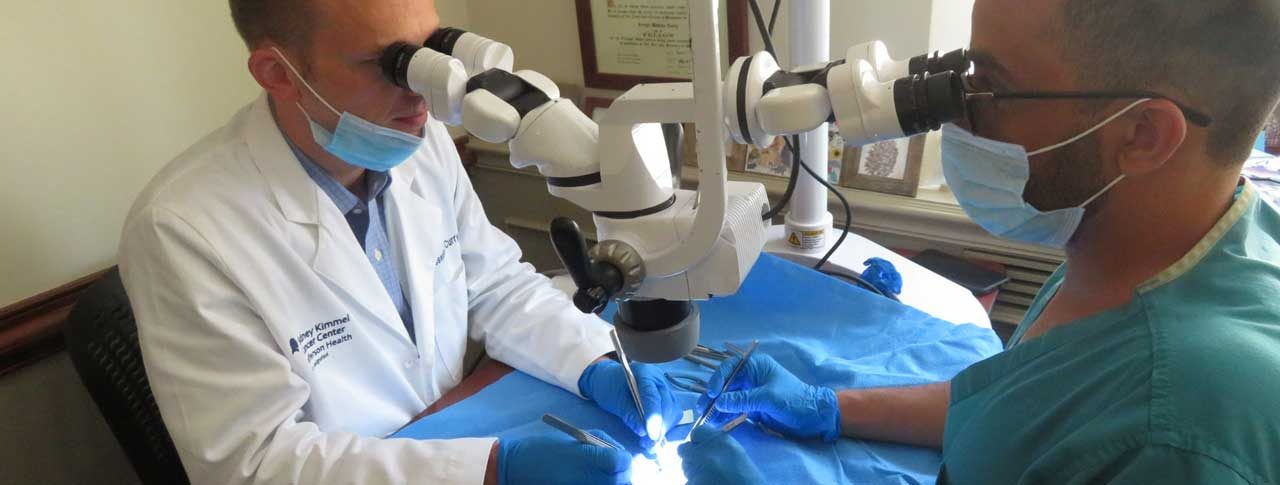Pediatric Otolaryngology: What Parents Should Know
Pediatric Otolaryngology: What Parents Should Know
Blog Article
Discovering the Field of Otolaryngology: What to Anticipate When You Consult an ENT
Otolaryngology, frequently referred to as ENT, encompasses the diagnosis and treatment of ear, throat, and nose conditions. For those experiencing related problems, seeking advice from an ENT expert can give clearness and relief. Understanding what to expect throughout such appointments is essential for reliable communication and treatment. This overview will certainly outline vital elements of the ENT experience, consisting of common factors for check outs and the processes included in medical diagnosis and treatment.

Understanding Otolaryngology: An Introduction
Otolaryngology, usually referred to as ENT (Ear, throat, and nose) medication, is a specific branch of medicine that concentrates on the diagnosis and treatment of problems influencing these critical locations of the body. This area incorporates a wide range of disorders, including those related to hearing, balance, respiratory function, and speech. Otolaryngologists are trained to manage both clinical and medical therapies, making use of innovative strategies and technologies. Their experience expands past standard conditions, addressing issues such as allergic reactions, sinus infections, and hearing loss. Additionally, they play an important function in the monitoring of head and neck cancers, offering complete care customized to individual person demands. In general, otolaryngology remains essential for keeping health and wellness and high quality of life in affected people.
Typical Factors to See an ENT Professional
Several people seek the experience of an ENT specialist for a variety of reasons, showing the varied nature of problems that influence the throat, ear, and nose. Usual problems include persistent sinus problems, which often causes relentless nasal congestion and facial discomfort. Allergic reactions and their associated signs, such as sneezing and itching, likewise trigger brows through to these specialists (ENT Doctor). Hearing loss, whether steady or unexpected, is another substantial factor for assessment. Additionally, individuals may seek evaluation for throat disorders, including persistent hoarseness or ingesting problems. Sleep apnea, identified by disrupted breathing during rest, is regularly dealt with by ENT specialists. Each of these problems highlights the relevance of specialized treatment in managing intricate ENT-related health and wellness problems
Preparing for Your ENT Consultation
When planning for an ENT visit, it is vital to gather relevant information and take into consideration any kind of certain issues. People must put together a comprehensive medical background, including previous ear, nose, or throat concerns, surgical treatments, and current drugs. Documenting signs and symptoms-- such as seriousness, frequency, and period-- can provide useful insights for the ENT expert. In addition, people ought to prepare a checklist of questions they want to ask, making sure that all concerns are dealt with throughout the see. Bringing along any appropriate medical documents or test results can additionally assist the ENT in understanding the person's condition. Clients should verify their appointment information, consisting of time, date, and location, to lessen any type of last-minute confusion. Proper preparation can enhance the efficiency of the examination and cause much better end results.
What to Anticipate Throughout the Appointment
As the examination starts, the patient can expect to take part in a complete conversation with the ENT professional regarding their signs and symptoms and case history. The expert will ask about the duration, regularity, and seriousness of symptoms such as hearing loss, nasal congestion, or aching throat. In addition, the patient's previous clinical conditions, drugs, and any kind of appropriate family history will certainly be assessed, assisting the expert in forming a total understanding of the patient's health. The ENT may likewise ask about way of life variables, such as direct exposure to allergens or toxic irritants. This open dialogue establishes a foundation for the assessment, making certain that the individual's problems are addressed and establishing the phase for any type of essential evaluations or recommendations for therapy.
Analysis Examinations and Treatments in Otolaryngology
A series of diagnostic examinations and procedures are vital in otolaryngology to precisely evaluate and diagnose conditions influencing the nose, ear, and throat. Common examinations consist of audiometry, which measures hearing function, and tympanometry, examining middle ear stress. Nasal endoscopy enables Look At This visualization of the nasal flows and sinuses, while laryngoscopy takes a look at the throat and vocal description cords. Imaging techniques, such as CT scans and MRIs, give in-depth views of head and neck structures. Allergic reaction testing might additionally be carried out to determine triggers for sinus or respiratory problems. These analysis tools allow ENT specialists to develop a complete understanding of patients' problems, ensuring customized and efficient management plans. Appropriate medical diagnosis is necessary for successful treatment end results in otolaryngology.
Therapy Alternatives Used by ENT Specialists
ENT experts provide a variety of treatment alternatives tailored to resolve details conditions affecting the nose, throat, and ear. These treatments range from conservative techniques, such as drug and way of life adjustments, to more intrusive treatments. Allergic reactions might be taken care of with antihistamines or immunotherapy, while persistent sinus problems may need nasal corticosteroids or sinus surgical treatment. For hearing loss, ENT professionals typically recommend listening devices or medical interventions like cochlear implants. In situations of throat conditions, options can include speech treatment or operations to get rid of blockages. In addition, they might give advice for taking care of rest apnea, including using CPAP tools or medical interventions. Generally, the goal is to enhance patients' lifestyle through customized care and reliable therapy methods.
When to Seek Follow-Up Treatment With an ENT
When to look for follow-up care with an ENT professional is vital for managing continuous signs or difficulties associated to throat, nose, and ear conditions, identifying. Clients ought to take into consideration setting up a follow-up visit if signs persist in spite of initial treatment, such as persistent ear pain, nasal blockage, or throat pain. Adjustments in hearing, balance problems, or uncommon nasal discharge may also necessitate additional evaluation. Furthermore, if a client experiences side effects from recommended medications or has gone through a medical procedure, follow-up care is necessary to monitor healing and attend to any kind of problems. Timely appointments can ensure effective administration of conditions, stop possible problems, and provide satisfaction regarding one's wellness. Seeking follow-up care promotes positive health monitoring in otolaryngology.
Frequently Asked Inquiries

What Credentials Should I Seek in an ENT Expert?
When looking for an ENT professional, one should search for board qualification, relevant experience, and strong individual reviews. Furthermore, effective communication abilities and a caring strategy can considerably improve the general therapy experience.
Just how Do I Pick the Right ENT for My Demands?
Choosing the appropriate ENT expert involves amb otolaryngology reviewing their certifications, experience, and person reviews (Hearing). It is necessary to contemplate their interaction style and method to therapy, guaranteeing they straighten with the individual's particular health and wellness demands and preferences
Are There Any Type Of Threats Associated With ENT Procedures?
The dangers related to ENT procedures may include infection, blood loss, anesthetic issues, and prospective damages to bordering structures. Individuals need to talk about these threats with their doctor to comprehend individual problems and warranty notified choices.
How Can I Take Care Of Anxiousness Prior To My ENT Consultation?
To handle anxiousness prior to a consultation, people can exercise deep breathing workouts, envision favorable end results, prepare inquiries ahead of time, and look for support from close friends or family, cultivating a sense of peace of mind and calmness.
What Should I Do if I Experience Adverse Effects From Treatment?
If side effects from treatment take place, the person should immediately report them to their doctor. Modifications to treatment or added interventions may be needed to assure safety and efficiency in handling their condition - Sinus. As the examination starts, the individual can anticipate to engage in a comprehensive conversation with the ENT expert about their signs and symptoms and clinical history. These diagnostic tools enable ENT experts to create a detailed understanding of clients' conditions, making certain customized and effective administration strategies. ENT experts supply a range of therapy choices customized to attend to specific conditions affecting the ear, nose, and throat. When looking for an ENT expert, one need to look for board certification, pertinent experience, and strong client testimonials. Selecting the appropriate ENT expert entails examining their qualifications, experience, and person reviews
Report this page